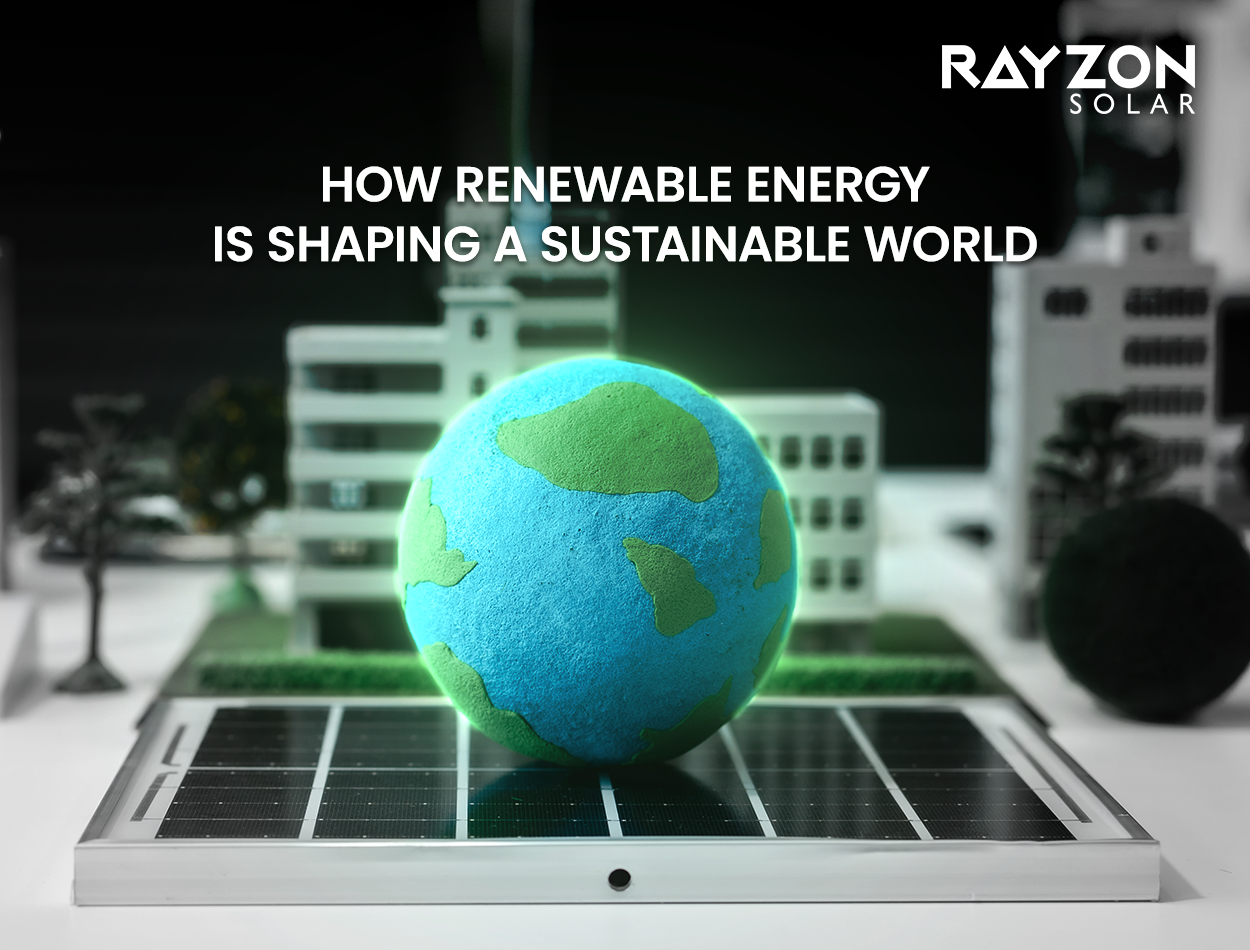
The Environmental Impact of Solar Energy
In today's rapidly evolving world, the pursuit of green energy solutions is paramount. Solar energy has emerged as a leading contender in the race towards sustainable and renewable energy sources. This blog explores the environmental impact of solar energy, delving into how it contributes to a cleaner planet and why companies like Rayzon Solar are at the forefront of this revolution.
The Environmental Impact of Solar Panel Manufacturing
While the operational phase of solar energy systems is environmentally friendly, it is important to consider the impact of solar panel manufacturing. Rayzon Solar, a top solar panel manufacturer, is working diligently to minimize these impacts. The production process involves significant energy consumption and the use of various materials, including silicon, glass, and metals, which can contribute to environmental degradation if not managed responsibly.
However, the best solar companies are continuously innovating to reduce their carbon footprint and improve sustainability. Rayzon Solar, recognized as one of the best in the industry, works with advanced technologies and sustainable practices to mitigate the environmental impact of its manufacturing processes. By prioritizing eco-friendly methods and materials, these top solar panel manufacturers are paving the way for a greener future, ensuring that the benefits of solar energy are not overshadowed by the environmental costs of production.
Understanding Solar Energy and Its Benefits
Solar energy is harnessed from the sun's rays using photovoltaic(PV) technology. This method converts sunlight directly into electricity, providing a clean, renewable energy source. Unlike fossil fuels, solar energy produces no harmful emissions during operation, making it an environmentally friendly alternative.
Key Environmental Benefits of Solar Energy
1. Reduction in Greenhouse Gas Emissions: One of the most significant environmental benefits of solar energy is the reduction in greenhouse gas emissions. Traditional energy sources, like coal and natural gas, release large amounts of carbon dioxide and other pollutants into the atmosphere. Solar power, on the other hand, generates electricity without these harmful emissions, significantly lowering the carbon footprint.
2. Decreased Air Pollution: Fossil fuel power plants contribute to air pollution, which can lead to health issues such as respiratory problems and cardiovascular diseases. Solar energy systems do not emit pollutants, thus improving air quality and contributing to better public health.
3. Water Conservation: Traditional power generation often requires large amounts of water for cooling purposes. Solar photovoltaic(PV) systems, however, use minimal water. This conservation is particularly beneficial in arid regions where water is a precious resource.
4. Reduction in Habitat Destruction: Mining for fossil fuels often leads to habitat destruction and biodiversity loss. Solar panels can be installed on rooftops, brownfields, and other spaces that do not disrupt natural habitats, making it a more ecologically sensitive choice.
Read More:- Why Should You Invest In Solar Power?
Solar Energy's Role in Combating Climate Change
Climate change is a pressing global issue, and renewable energy sources like solar power play a crucial role in mitigating its effects. By reducing dependence on fossil fuels, solar energy helps decrease the overall carbon releases that drive climate change.
The Growth of Solar Energy
The solar energy sector has seen significant growth in recent years. Advances in solar technology have made it more efficient and affordable. Companies like Rayzon Solar are leading the charge by manufacturing high-quality solar panels that offer exceptional performance and durability.
Rayzon Solar: Leading the Way in Solar Technology
Rayzon Solar is one of the top solar panel manufacturers in India, recognized for its commitment to innovation and quality. As a leading solar panel manufacturer, Rayzon Solar produces some of the most efficient solar panels on the market. Their dedication to sustainability and excellence makes them a top choice for consumers seeking the best solar panels for home and commercial use.
Energy Use in Manufacturing
The process of manufacturing solar panels requires energy, often derived from non-renewable sources. However, the energy payback time—the time it takes for a solar panel to generate the amount of energy used to produce it—is relatively short. Typically, solar panels offset their manufacturing energy within a few years of operation.
Material Use and Recycling
Solar panels are primarily made from silicon, a plentiful and non-toxic element. The industry is also making strides in recycling technologies to handle end-of-life solar panels. Recycling not only reduces waste but also recovers valuable materials, contributing to a more sustainable development for solar products.
Advances in Eco-Friendly Manufacturing
Advancements in solar technology are constantly enhancing the environmental sustainability of solar panel manufacturing. Companies such as Rayzon Solar are dedicating resources to research and development to establish more efficient production methods, minimize waste, and improve the recyclability of their products.
Job Creation
The solar industry is a major driver of job creation. From research and development to manufacturing, installation, and maintenance, the sector offers a wide range of employment opportunities. In India, Rayzon Solar is contributing to this job growth, supporting local economies, and providing skilled employment. For more information on career opportunities in the solar industry, visit the Rayzon Solar career page
Solar Energy in India: A Path to Sustainable Development
India is rapidly embracing solar energy as a key component of its renewable energy strategy. With abundant sunlight, the country has the potential to become a global leader in solar power. Government initiatives and supportive policies are accelerating the deployment of solar technology across the nation.
Government Initiatives and Policies
The Indian government has launched several initiatives to promote the adoption of solar energy. Programs like the Jawaharlal Nehru National Solar Mission aim to increase the country's solar capacity and make solar power more accessible to the population. These policies are creating a favorable environment for solar companies to thrive.
The Future of Solar Energy
The future of solar energy is bright, with continuous advancements in technology and increasing global adoption. As the world shifts towards renewable resources, solar energy will play an integral role in achieving a sustainable and environmentally friendly energy system.
Rayzon Solar envisions a future where clean, renewable energy is accessible to all. By continuing to innovate and deliver high-quality solar products, Rayzon Solar aims to lead the way in the global transition to sustainable energy.
In Conclusion, The environmental impact of solar energy is overwhelmingly positive, contributing to the reduction of greenhouse gas emissions, air pollution, and water usage. As a leading solar panel manufacturer, Rayzon Solar exemplifies the best practices in the industry, driving innovation and sustainability. By choosing solar energy, individuals and businesses can play a vital role in protecting the environment and promoting a greener future.
Embracing solar energy is not just an investment in technology; it's an investment in the health of our planet. With the continued support of top solar companies like Rayzon Solar and advancements in solar technology, the future of renewable energy in India and around the world looks promising. By harnessing the power of the sun, we can pave the way for a cleaner, more sustainable future for generations to come.
You Can Also Read This: The History Of Solar Energy



